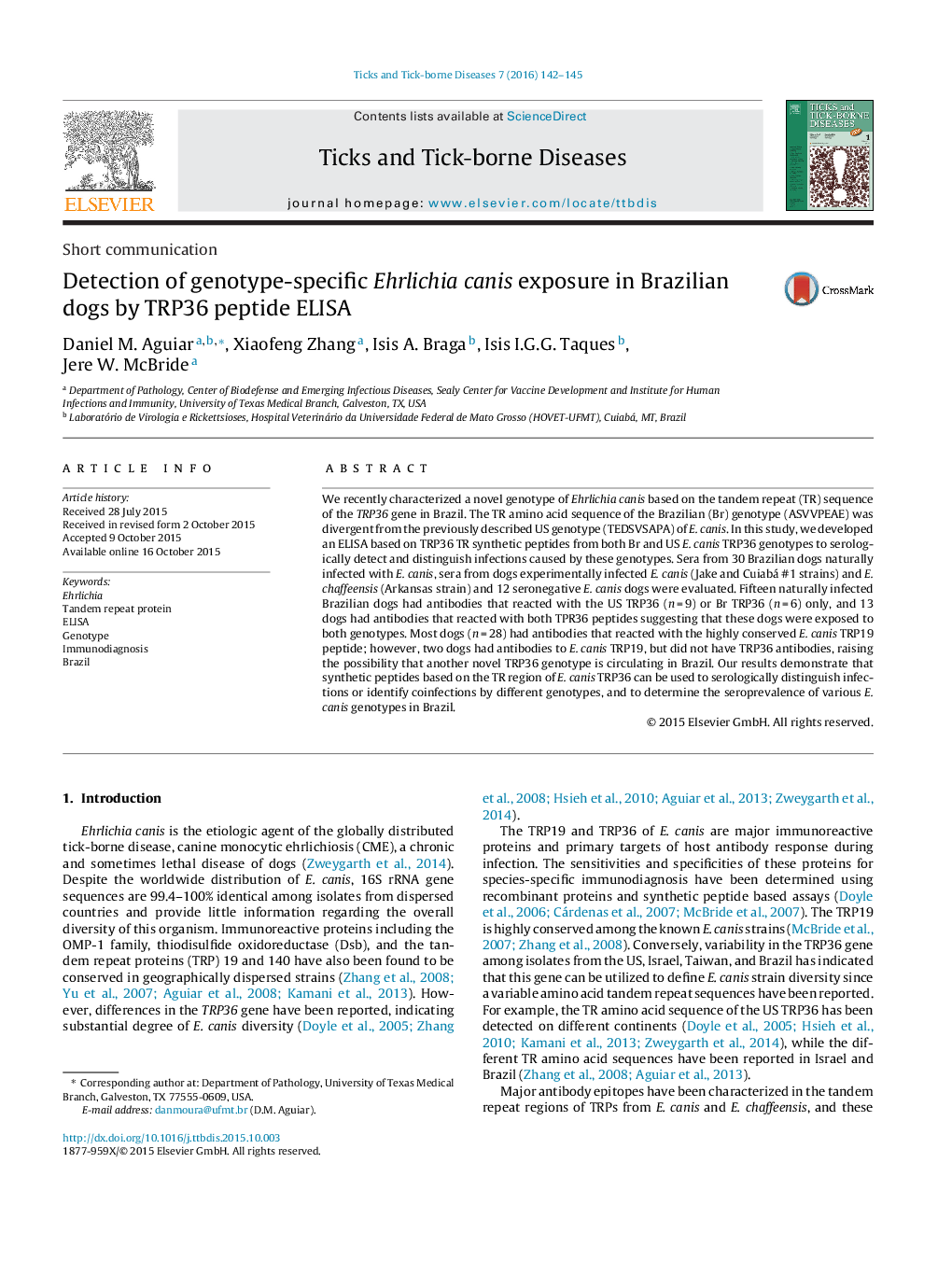| Article ID | Journal | Published Year | Pages | File Type |
|---|---|---|---|---|
| 5807025 | Ticks and Tick-borne Diseases | 2016 | 4 Pages |
We recently characterized a novel genotype of Ehrlichia canis based on the tandem repeat (TR) sequence of the TRP36 gene in Brazil. The TR amino acid sequence of the Brazilian (Br) genotype (ASVVPEAE) was divergent from the previously described US genotype (TEDSVSAPA) of E. canis. In this study, we developed an ELISA based on TRP36 TR synthetic peptides from both Br and US E. canis TRP36 genotypes to serologically detect and distinguish infections caused by these genotypes. Sera from 30 Brazilian dogs naturally infected with E. canis, sera from dogs experimentally infected E. canis (Jake and Cuiabá #1 strains) and E. chaffeensis (Arkansas strain) and 12 seronegative E. canis dogs were evaluated. Fifteen naturally infected Brazilian dogs had antibodies that reacted with the US TRP36 (n = 9) or Br TRP36 (n = 6) only, and 13 dogs had antibodies that reacted with both TPR36 peptides suggesting that these dogs were exposed to both genotypes. Most dogs (n = 28) had antibodies that reacted with the highly conserved E. canis TRP19 peptide; however, two dogs had antibodies to E. canis TRP19, but did not have TRP36 antibodies, raising the possibility that another novel TRP36 genotype is circulating in Brazil. Our results demonstrate that synthetic peptides based on the TR region of E. canis TRP36 can be used to serologically distinguish infections or identify coinfections by different genotypes, and to determine the seroprevalence of various E. canis genotypes in Brazil.
